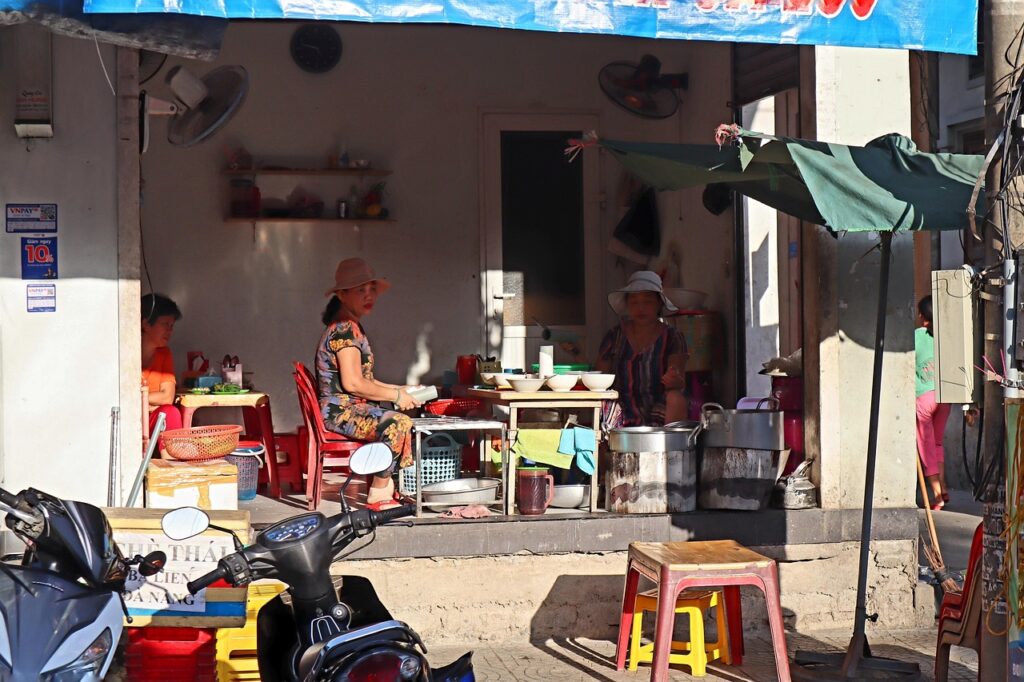Expat memoirs, even (or perhaps especially) of the East Asian variety, are a venerable genre. One suspects that even in the early days, what authors presented as new and exotic, probably wasn’t really. In these days of ubiquitous travel videos on YouTube, this is probably even more the case. As a result, such books need a good raconteur or prose stylist to pass muster. Fortunately, Connla Stokes is both.
The title Falling for Saigon is a bit of a head fake, for Irish writer Stokes had already been in Vietnam: he “had been happily ensconced in Hanoi” for several years before relocating to Ho Chi Minh City (Stokes uses Saigon; one is left to guess the reason)—his point of reference isn’t Dublin anymore, but rather Vietnam’s northern capital. He had
a deep attachment to that city’s dreamy aesthetics – those drowsy lakes, crumbling villas, century-old trees, centuries-old pagodas.
But his Vietnamese wife was posted to “the ‘great rival’”, so off he went.

Falling for Saigon is a short book of short vignettes, most just a few pages. There is quite a lot about coffee and the related (most male) activity (if that’s the right word) of sitting around and talking. He lives through Covid, and bicycles the city. For anyone who has lived abroad, there are many recognizable moments, such as this tale of an expat back home in London: coming across a Vietnamese restaurant, he discovered the owner
was Vietnamese, so my mate cooed her over with his best chi oi! (‘hey, older sister’) to order his pho but she was from the south of Vietnam and didn’t seem to think much of his Hanoi accent and northern vernacular, so she answered him in Londonised English and scooted away.
… or another about a “repatriated Irishman” who
had lived in Hanoi for a spell, starting each and every single day with a couple of iced coffees, I pointed out the old filter he’d brought back with him. It was rusting away on his kitchen windowsill, not gone, but certainly forgotten. He then opened a cabinet to reveal he’d hardly put a dent in the supplies of robusta coffee that he’d packed in Hanoi on the eve of his departure. When I asked why, he gazed into his small, suburban garden, more of a yard, really, and said with a shrug: ‘It just doesn’t taste the same here. I mean – how could it?’
Although Stokes would have us believe that there is something uniquely special about Saigon, such a book could have (and, I imagine, has) been written about almost every major city (and quite a few minor ones) east of Suez. Therein, perhaps lies the pleasure: just as Stokes’s point of reference is Hanoi, other readers with a stint (or a lifetime) in Asia will be enchanted and interested by what is the same as in their adopted home and what is a variation. Stokes remains an outsider (that for the most part is an expat’s fate), but sometimes an outsider can see beauty in the banal.
It helps that he writes well. The vignettes pass quickly: these often have the feel of dinner-table repartee (perhaps not coincidentally, given the amount of eating and drinking in the book); none go on too long. Nor does the book.


You must be logged in to post a comment.